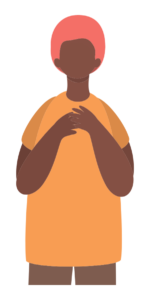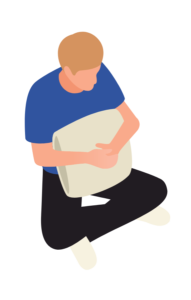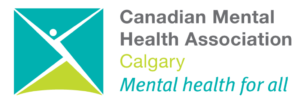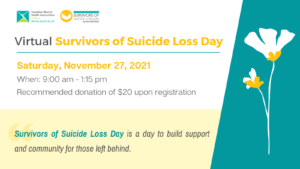Menu
Close
The Importance of Men’s Mental Health
Nov 4, 2021
Although tremendous leaps have been made surrounding men’s mental health in the past decade—men are still in crisis.
Men die by suicide in numbers almost four times that of women, including young men between the ages of 20 – 30 in alarming numbers and men aged 40 – 60.¹
“Out of the 4,000 Canadians that have died by suicide in one given year, it was [reported] that around 75% of those were men,” said CMHA Calgary’s Counsellor, Nick. “I think at this point in time, continuous awareness for men’s mental health needs to continue. It’s been a bit more of a hot topic in the last few years and understanding where those stigmas are and that societal conditioning comes from. But I think we’re in that flux area, or that kind of latency period where we start the conversation, and then start to see change.”

Since 2003, Movember has funded more than 1,250 men’s health projects around the world, challenging the status quo, shaking up men’s health research and transforming the way health services reach and support men.
With national campaigns like Movember highlighting the importance of speaking up about mental health, suicide prevention, prostate and testicular cancer, men’s health has never been more publicized yet suicide rates in Canada consistently show that men are still taking their own lives.
“Stigmas are tough—it comes from that traditional way of thinking and seeing vulnerability as weakness. It’s definitely not isolated to just the male demographic, but it’s the built-up societal stigma or societal expectation that men are strong and can handle anything whether it’s emotions, relationships, work, etc.,” said Nick.
Facing Adversity

As a possible solution to find out how you’re feeling while building your resilience, Nick suggests reflecting on your feelings and actions within a given time period.
“Some of the things [you] can do is notice in a two to four-week period what’s changed—attentiveness, difficulties and irritability—I think just noticing and finding those reflective pieces to recognize within ourselves is really a big part of it.”
Another part of building your resiliency is seeking support for the thoughts and feelings you can’t control.
“Whether that’s a counsellor, a best friend, or a family member; just somebody to talk to and really fleshing out those thoughts that we’ve got in our head.”
“Resiliency is an acceptance of things. Understanding yourself, understanding the external things coming towards you—whether that’s life events, or difficulties in relationships or work related—it’s an acceptance of knowing where you’re at, and, and being able to bolster that so that we can manage those better.” – Nick
Where to Go for Resources
For those who don’t know where to turn or want to direct a friend or family member in the right direction, Nick suggests the following resources:
- Talking with your family doctor for either a medical perspective or direction to a different resource;
- Reaching out for counselling whether at CMHA Calgary or another agency in Calgary – online appointments can be booked through Community Connect YYC;
- For those considering suicide, contact the Distress Centre’s 24-hour Crisis Line at (403) 266-HELP or visit their website;
- If you or a person you know is at immediate risk of harming yourself or others, call 9-1-1
 With November being Men’s Health Awareness Month, Nick said it’s important that we continue to bring male mental health into the spotlight and make sure there are safe and open spaces for men to talk and express without judgement.
With November being Men’s Health Awareness Month, Nick said it’s important that we continue to bring male mental health into the spotlight and make sure there are safe and open spaces for men to talk and express without judgement.
“The more we talk about it, the more that we bring it up and normalize the process, I think the easier it might be to break down those social walls or barriers so more men can get support,” said Nick. “There is still a long way to go.”
¹”Men and Suicide,” Centre for Suicide Prevention, Accessed October 28, 2021, https://www.suicideinfo.ca/resource/menandsuicide/
Survivors of Suicide Loss Day
Coming up on Saturday, November 27, 2021, CMHA Calgary will be hosting our annual Survivors of Suicide Loss Day – a one day event for individuals who have lost someone to suicide (parent, child, spouse/partner, aunt, uncle, cousin, niece, nephew, friend, or extended relationship) to come together and connect in a supportive environment. CMHA Calgary works with a dedicated group of devoted volunteers to present a day of support, healing, information, connection, and hope for those left behind.
For more information or to register for Survivors of Suicide Loss Day, click here.
Nick has a Master’s in Counselling Psychology and a Bachelor of Arts in Psychology. He began working with CMHA as a counselling therapist 2 years ago and has been offering grief counselling, family support counselling, and supporting a multitude of other areas since his start. Nick has also run the Life After Loss, Capable Carers, and the Suicide bereavement drop-in group throughout his two years with CMHA.

Our Peer Support program services can be accessed over the phone at 403-297-1402 or through email at peer@cmha.calgary.ab.ca. We have teamed up with other Calgary agencies to help Calgarians quickly and easily access various counselling and social supports. Visit www.communityconnectyyc.ca, where you can book online for our Suicide Bereavement and Family Support Counselling, and other supports. If you prefer to still book through us, please phone (403-297-1708), or email (counsellingintake@cmha.calgary.ab.ca).

